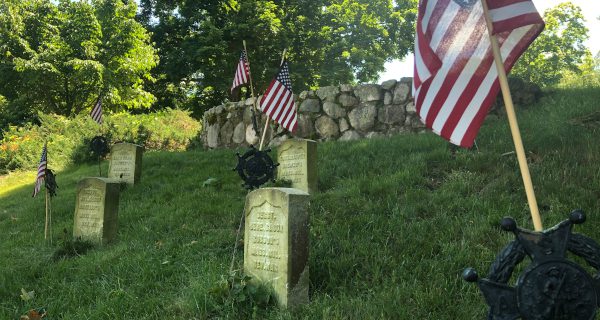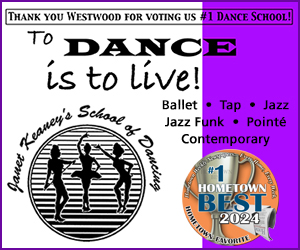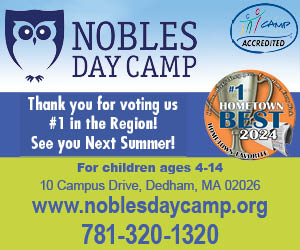By Stephen Press
Hometown Weekly Editor
In Flanders fields the poppies grow
Between the crosses, row on row,
That mark our place;
For years, July 4 has lulled us into a sense of almost patriotic routine. We know the day, its festivities and rituals so well that its trappings have become stand-ins for the heart of its importance.
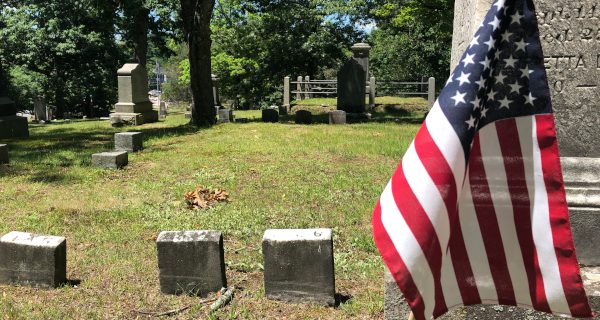
Now, as COVID-19 has temporarily pitched us out of these routines and forced us to seek ways to observe the day without the benefit of large community gatherings, I find myself at a loss.
There will be no dramatic fireworks displays; no uniformed individuals parading and raising the flag as we stand, shoulder-to-shoulder, with our neighbors; no backyard barbecues with sparkler-bearing children darting between chatting guests; no marveling at the televised musical displays on the Charles River Esplanade.
And so, in lieu of my typical monthly pandemic "grand tour" through Hometown Weekly's communities, I've decided to take a bit of a different route today. I'm going to stop in some of our communities' oldest cemeteries to reflect on the moment, on the nation's history, and on July 4 itself. My tour will bring me to Medfield's Vine Lake Cemetery, Highland Cemetery in Dover, Old Westwood Cemetery, and Walpole's Terrace Hill Cemetery.
We are the Dead. Short days ago
We lived, felt dawn, saw sunset glow
It can be easy to find oneself eased into a sense of peace and emotional distance in a cemetery. By nature, they are not lively or confrontational places. They are quiet, most of them are naturally beautiful and meticulously groomed, and they're populated with inanimate sculpture and stones. We can forget the amount of humanity represented in them.
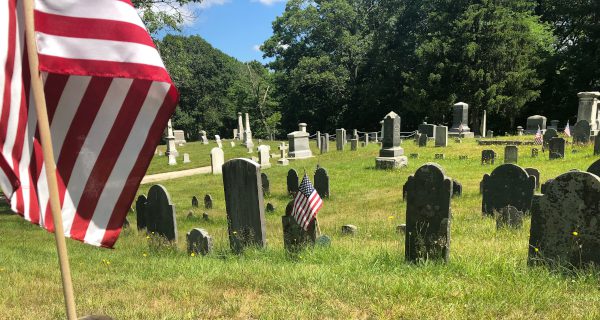
Particularly on a beautiful day like today, it takes conscious effort to remember that each of these markers represents not only an individual, but the grief of loved ones who once crowded around these spots, clad in black, to mourn those people.
One must take care to remain fully present, if they are to appreciate it properly.
As I respectfully enter my destinations, I find myself in conversation with the headstones, and the subtle stories they tell. "You, sir," I say to one Revolutionary War veteran's faded stone as I read the dates on its face and place my cap under my arm, "must have been but fifteen when you enlisted." It takes a moment to wrap my head around it.
The fresh-faced boy who darted through the crosswalk on his bike on my way here, a bag of candy dangling from his handlebars - he was about fifteen. To picture him in the tattered uniform of a Continental soldier, having received consent to enlist from his parents, seems utterly surreal.
"What perspective you must have had," I quietly marvel at another headstone of a former Union soldier whose lifespan brought him from the cavalry charges and coordinated rifle volleys of the Civil War through the mustard gas and mechanized trench warfare of WWI.
These are the unique souls upon whom our nation - and our community - was built.
On other memorials, next to miniature American flags waving in the breeze, I see names that adorn street signs and public squares in these towns, recognizing them immediately. I pay my respects, knowing that while I will never have the good fortune to meet these individuals, their names will now represent more to me than mere lengths of pavement en route to a destination.
I have no words, meanwhile - only gratitude and a reverential bow of my head - at the headstone of a Gold Star mother, whose sacrifice I will never comprehend.
There are all manner of patriots represented in our old burial grounds, and the threads of their individual stories, stitched together, make us who we are as a people.
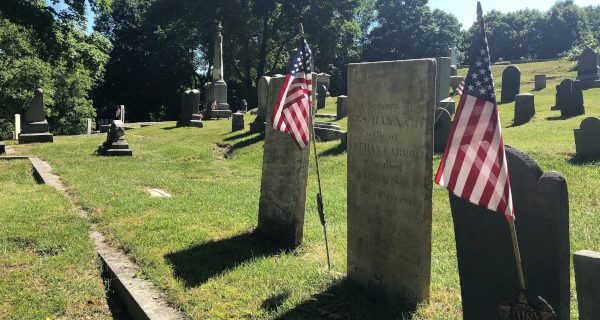
To you from failing hands we throw
The torch; be yours to hold it high.
The pandemic has forced us all into a far less glorious form of patriotism as we seek to protect one another, and ourselves, from an invisible, indiscriminate enemy. 2020 has already robbed us of our springtime and part of our summer, of our high school graduations, of professional and amateur sports seasons, of our Patriots Day, our Memorial Day, and now our Independence Day.
I am, however, not a teenager picking up a musket and marching to Yorktown, wondering whether or not there will be a ration of flour or dried peas at the end of the day. I am not donning Union blues, deathly afraid that among those butternut-clad men in the opposite encampment will be my cousins from Richmond, or an old business acquaintance from Atlanta. I'm not being asked to go over the top at Ypres, or to hold a beachhead at Anzio. I've not been tasked with standing up for free people in frozen fields, dense jungles, or barren deserts of a far-off place.
Those sacrifices and that bravery are miles away from the social distancing routines, meticulous hand-washing, and surgical-mask-wearing that have remained the focus of our last months together.
At their heart, though, they spring from the same place of concern and love for one's home, values and community.
Chances are, this year's Independence Day represented the most independent of your recent memory.
For this writer, at least, it also served as a poignant reminder that we're not in this alone.
Italicized passages are from John McCrae's "In Flanders Fields"




